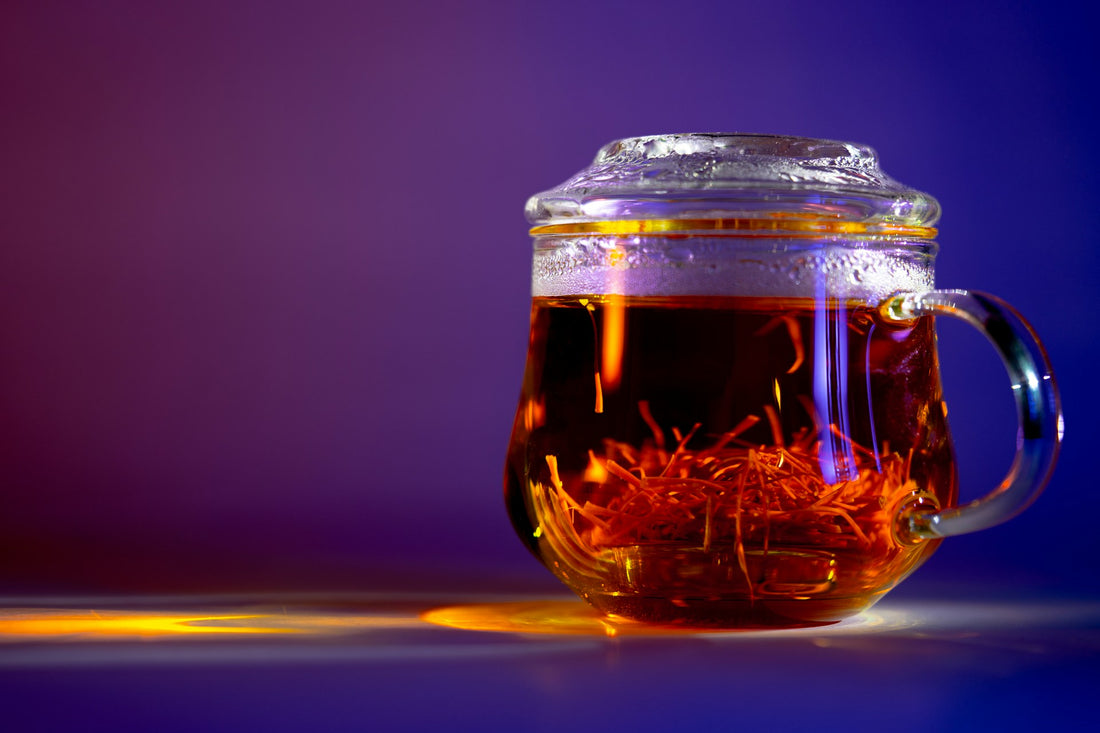
A Guide to Use Saffron : Unlocking the Wellness Benefits
Unlocking the Wellness Benefits of Saffron: A Guide to Its Use
Saffron, often referred to as “red gold,” is not only a beloved spice known for its unique flavor and vibrant color but also a treasure trove of potential health benefits. From mood enhancement to skin care, saffron has been cherished for centuries. Here’s how to incorporate saffron into your wellness routine safely and effectively.
How to Use Saffron for Wellness
Culinary Use
Adding saffron to your meals is one of the most delightful ways to enjoy its benefits. Aim for about 10-20 threads per day in dishes like rice, soups, or stews. To maximize its flavor and health properties, soak saffron strands in warm water or broth for 10-15 minutes before adding them to your cooking.
Saffron Tea
Saffron tea is a calming beverage that can be easily prepared. Steep about 10-15 threads in hot water for 10-15 minutes. This soothing drink can help lift your spirits and promote relaxation.
Supplements (Least Recommended) : Why use a supplement when you can use the natural product with no chemicals added.
Buy best quality saffron (Grade : Mogra) only at SaffronLinks
Saffron is also available in supplement form, often marketed for mood support and cognitive function. If considering supplements, common dosages range from 30 mg to 200 mg of standardized extract. Always consult a healthcare professional before starting any new supplement.
Skin Care
Saffron can be used in DIY face masks due to its antioxidant properties. Mix saffron with honey or yogurt to create a hydrating and rejuvenating mask for your skin.
Aromatherapy
Utilizing saffron essential oil in a diffuser can enhance your environment with its soothing aroma, contributing to stress relief and relaxation.
Mindfulness Practices
Incorporate saffron into your meditation or yoga rituals. Enjoy it in tea or create a fragrant environment with saffron to deepen your mindfulness experience.
Dosage Guidelines
For Adults
- Culinary Use: 10-20 threads per day
- Saffron Tea: 10-15 threads
- Supplements: Follow product dosage, typically 30 mg to 200 mg.
For Children
- Culinary Use: A small pinch (about 20-30 mg) is safe, and not every day.
- Saffron Tea: Use 2-5 threads to make a mild tea.
- Supplements: Consult a pediatrician before use.
Safety Considerations
Saffron is generally safe in culinary amounts, but excessive consumption can lead to side effects such as nausea or dizziness. Always monitor for allergic reactions, especially when introducing saffron to children.
Buy best quality saffron (Grade : Mogra) only at SaffronLinks
Supporting Research
Numerous studies support the health benefits of saffron:
-
"Saffron (Crocus sativus L.) and its bioactive compounds: A review" - Journal of Ethnopharmacology
- Explores pharmacological effects, including anti-depressant properties.
-
"The efficacy of saffron for depression: A systematic review and meta-analysis" - Journal of Affective Disorders
- Indicates saffron’s effectiveness in alleviating depression symptoms.
-
"Crocus sativus L. (Saffron) as an adjunct therapy in patients with major depressive disorder" - BMC Complementary Medicine and Therapies
- Evaluates saffron’s effects when used alongside standard treatments.
-
"Saffron and its effects on cognition: A systematic review and meta-analysis" - Journal of Medicinal Food
- Discusses cognitive benefits associated with saffron supplementation.
Conclusion
Incorporating saffron into your daily routine can unlock a variety of wellness benefits. Whether you choose to use it in your cooking, enjoy it as tea, or explore its skincare properties, saffron offers a natural way to enhance your health. Always remember to use saffron in moderation and consult healthcare professionals for personalized advice. Enjoy your journey to wellness with this remarkable spice!
